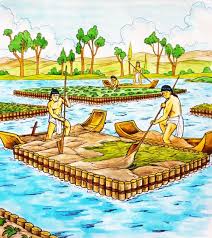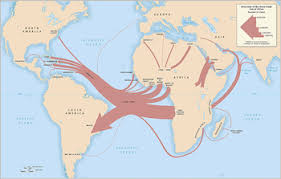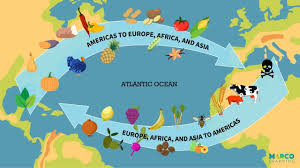AP World Vocab
1/19
Earn XP
Description and Tags
Easy-Difficult vocab for the exam
Name | Mastery | Learn | Test | Matching | Spaced |
|---|
No study sessions yet.
20 Terms
Agricultural Revolution
A period of significant advancements in farming techniques, leading to increased food production and a major shift in human societies from nomadic hunter-gatherer lifestyles to settled agricultural communities.
Bureaucracy
A system of administration within an organization, particularly a government, characterized by a hierarchical structure, specialized roles, and adherence to rules and procedures.
Dar-Al-Islam
"Abode of Islam" or "House of Islam," is a term in Islamic political ideology referring to regions where Muslims are in the majority and the rulers practice Islam.

Chinampa. A Mesoamerican farming technique involving floating gardens on water surfaces to enhance agricultural output.
Caste System
A caste is a fixed social group into which an individual is born within a particular system of social stratification: a caste system.
Diaspora
A population that has been scattered from their original homeland and settled in other regions, often maintaining a sense of connection to their ancestral home.
Filial Piety
A virtue in Confucian philosophy emphasizing respect and devotion towards one's parents and ancestors.
Bushido
The code of moral principles and conduct followed by the samurai, emphasizing loyalty, honor, and discipline.
Diffusion
The process by which cultural beliefs, practices, and ideas spread from one group to another, often through trade, migration, or communication.
Feudalism
A social, economic, and political system prevalent in medieval Europe, characterized by the exchange of land for military service and the establishment of hierarchical relationships between lords, vassals, and serfs.
Serfdom
A system of labor in the feudal society where workers, known as serfs, were bound to the land they worked on and provided labor in exchange for protection and a place to live.
Enlightenment
An intellectual and philosophical movement in the 17th and 18th centuries emphasizing reason, individualism, and skepticism of traditional authority, which significantly influenced social and political thought.
Individualism
The belief in the moral worth of the individual and the importance of personal freedom and self-reliance, promoting the idea that individuals should think and act independently.
Neo-Confucianism
A philosophical system that combines Confucianism with elements of other ideologies, emphasizing a synthesis of traditional values and modern thought.
Westernization
The process of adopting Western culture, politics, and economics, often leading to significant changes in societies influenced by Western powers.
Janissaries
An elite infantry force in the Ottoman Empire, renowned for their discipline and loyalty to the Sultan.
Devshirme
A system in the Ottoman Empire for recruiting soldiers, particularly Janissaries, by taking Christian boys from their families, converting them to Islam, and training them for military service.
Mercantilism
An economic theory dominant from the 16th to 18th centuries, centered on the idea that a nation's wealth and power were directly tied to its accumulation of precious metals (primarily gold and silver).

Middle Passage

Columbian Exchange. The widespread transfer of plants, animals, and diseases between the Old World (Europe, Africa, and Asia) and the New World (the Americas) following Christopher Columbus's voyages in the late 15th century.